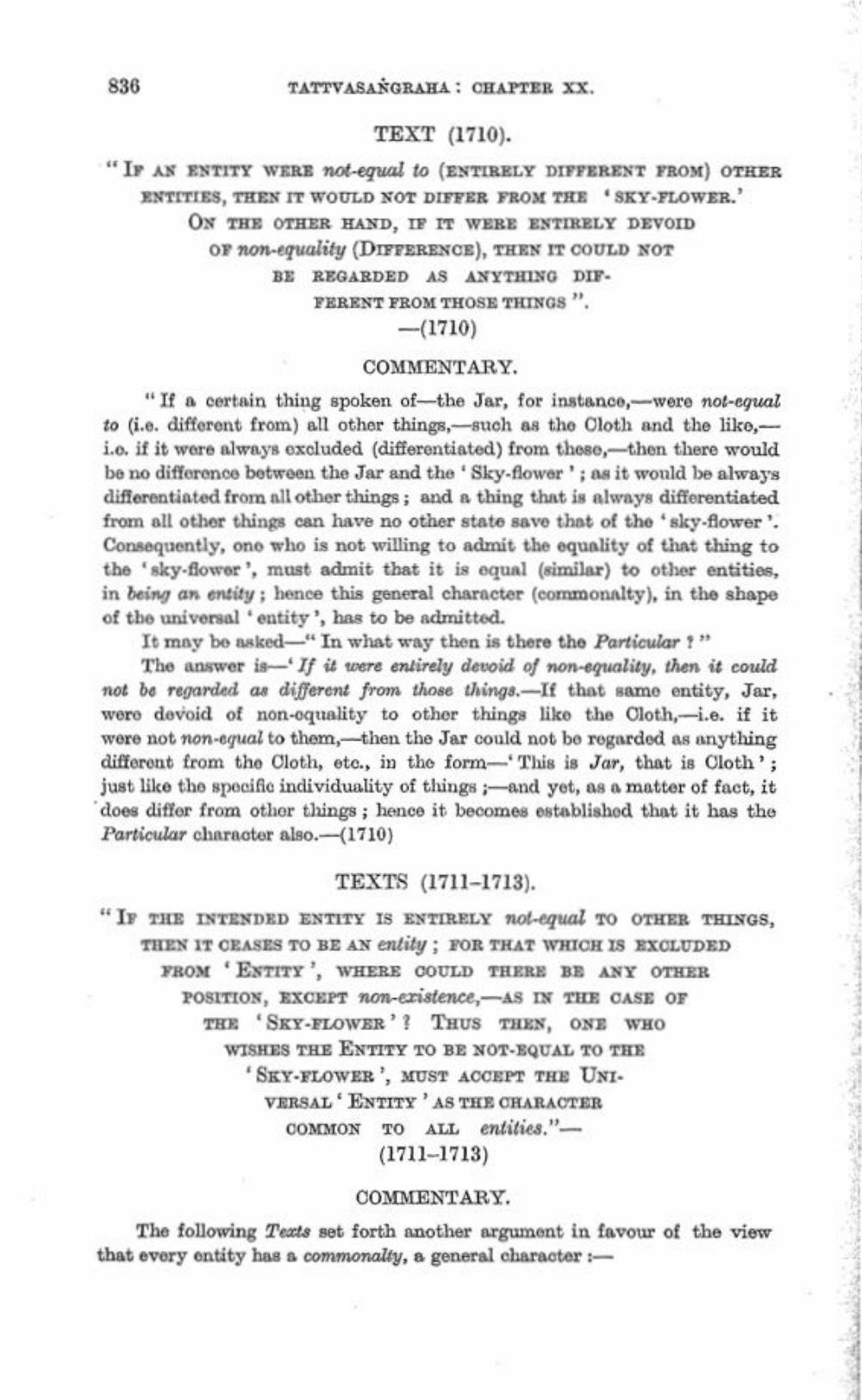________________
836
TATTVASANGRAHA : CHAPTER XX.
TEXT (1710). "IY AS ENTITY WERE not-egual to (ENTIRELY DIFFERENT FROM) OTHER ENTITIES, THEN IT WOULD NOT DIFFER FROM THE SKY FLOWER.'
ON THE OTHER HAND, IF IT WERE ENTIRELY DEVOID or non-equality (DIFFERENCE), THEN IT COULD NOT
BE REGARDED AS ANYTHING DIFFERENT FROM THOSE THINGS".
-(1710)
COMMENTARY. "If a certain thing spoken of—the Jar, for instance, were not-egual to (i.e. different from) all other things,-such as the Oloth and the like, i.e. if it were always excluded (differentiated) from these, then there would be no difference between the Jar and the 'Sky-flower'; as it would be always differentiated from all other things; and a thing that is always differentiated from all other things can have no other stato save that of the sky-flower'. Consequently, ono who is not willing to admit the equality of that thing to the 'sky-flower!, must admit that it is equal (similar) to other entities, in being an entity; hence this general character (commonalty), in the shape of the universal entity', has to be admitted.
It may be asked " In what way then is there the Particular ?"
The answer is- If it were entirely devoid of non-equality, then it could not be regarded as different from those things.-If that same entity, Jar, were devoid of non-oquality to other things like the Oloth,-i.e. if it were not non-equal to them, then the Jar could not be regarded as anything different from the Cloth, etc., in the form- This is Jar, that is Cloth'; just like the specific individuality of things and yet, as a matter of fact, it does differ from other things ; hence it becomes established that it has the Particular character also.-(1710)
TEXTS (1711-1713). "IF THE INTENDED ENTITY IS ENTIRELY not-equal TO OTHER THINGS,
THEN IT CEASES TO BE AN entity ; FOR THAT WHICH IS EXCLUDED FROM ENTITY, WHERE COULD THERE BE ANY OTHER POSITION, EXCEPT non-eristence,-AS IN THE CASE OF THE 'SKY-FLOWER'? THUS THEN, ONE WHO WISHES THE ENTITY TO BE NOT-EQUAL TO THE
SKY-FLOWER', MUST ACCEPT THE UNIVERSAL ENTITY' AS THE CHARACTER COMMON TO ALL entities."
(1711-1713)
COMMENTARY. The following Tests set forth another argument in favour of the view that every entity has a commonalty, a general character:




